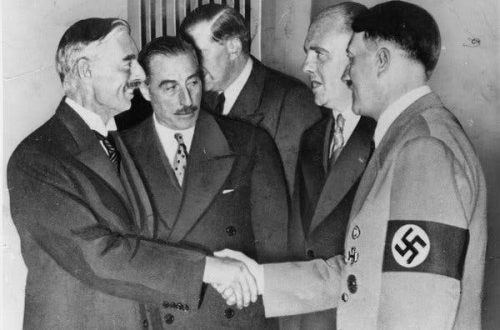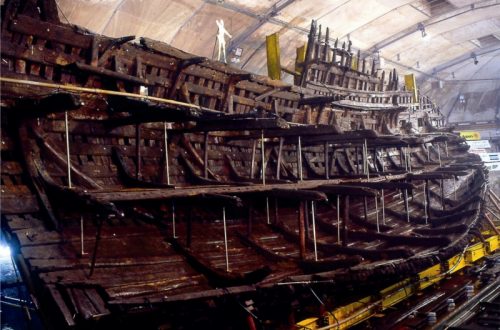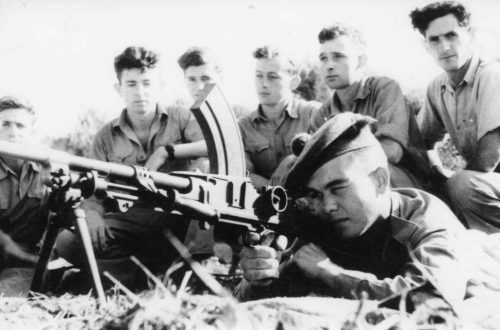
The Historical association (the more populist of the two professional historians organisations in England) last week produced a report on the teaching of emotive and controversial subjects in history. Most press coverage has been generated by the assertion that: a history department in a northern city recently avoided selecting the Holocaust as a topic for GCSE coursework for fear of confronting anti-Semitic sentiment and Holocaust denial among some Muslim pupils.
The Daily Mail took this single example and made it into: Schools are dropping the Holocaust from history lessons to avoid offending Muslim pupils. This led to reports of British schools abandoning the teaching of the holocaust wholesale spreading like wildfire across Europe, Australia and the USA where the hapless Northern teacher is apparently largely to blame for the fact that the 15 sailors captured by the Iranians did not instigate a full-scale shoot-out with the forces who kidnapped them.
Barry Rubin, writing in the New York Post, states that the Mail article contains what may be the scariest sentence I ever read. And then extrapolates that: Thus, British and French educators are ready to abandon 500 years of progress owing to open intellectual inquiry through the use of logic. All this from the fact that a single (and possibly new) teacher failed to take up the option on German history in a school in a Northern British city. Teachers are surely quaking with their newly-found power!
Let’s get some perspective here. A number of British examining boards offer GCSE history syllabuses. Edexcel, for example, offer six different courses (none of which as far as I can make out -on a cursory inspection- offer a module called “the holocaust”.) OCR offer at least four, and once again the “holocaust” would only be covered on one syllabus as part of a module called “Germany 1919-1945.” AQA offer three, again without a “holocaust” option. It is perfectly possible (by taking the “English Social History” syllabus offered by each board for instance) to not come into contact with the holocaust in any shape or form on a GCSE history course. The boards generally offer three courses: British social history, schools history project and modern world history syllabuses – the last one being where any reference to the holocaust will be found.
Presumably the “Northern School” had actually a) chosen not to teach a Germany 1919-45 module in its entirety and replaced the six to eight weeks which this would have taken up with some other aspect of history which was on offer, or b) chosen to teach the module and left out the lesson or half-lesson which would have covered the holocaust. I will admit to not chasing up syllabuses offered by the Welsh examining board etc, but I cannot at present actually find any board which offers a module at GCSE called “The Holocaust.”
Instead, a teacher may choose to teach the “Germany 1919-45” option offered by most boards. This itself has a core content that students must cover. For instance AQA’s is:
Was the Weimar Republic doomed from the start?
Why was Hitler able to dominate Germany by 1934?
The Nazi regime: how effectively did the Nazis control
Germany, 1933-45?
The Nazi regime: what was it like to live in Nazi
Germany?
At some point during these 4 sections “anti-semitism and persecution of minorities” must be covered. So given that a GCSE course has around 2 hours a week over two years (or only one year if like me you teach adults) and in that time students must cover four modules, we are probably talking about any holocaust component at GCSE taking up about half of one lesson. Are you still frightened or outraged by the school’s actions?
I have never taught GCSE history. I have prepared the course but the vicissitudes of adult student interest mean that it has never actually run. I have however taught the subject at A level for many years and have some experience with QCA consultancy work. (I’m not going to mention the rather odd lectures I have given elsewhere.) Personally I would be driven to choose modules primarily by what I thought would get a particular bunch of students engaged with the subject. Regular Harry’s Place readers may suspect that any lecture of mine on the Industrial Revolution would owe a lot to EP Thompson, and they would be quite right in that suspicion. But many of my students have been political conservatives, and nothing delights me more than when a good case is made for Castlereagh or Malthus. The purpose of history at this level is to get people thinking and engaging – a history teacher absolutely should be a devils advocate and not be put off by controversy. Having said that, everything now in education is target-driven and my choice to teach about the Nazis or any other subject would depend to a great extent on whether I thought my students would engage with it enough to pass the exam. Sad but true.
Does the missing of this lesson in one Northern English school really threaten “500 years of progress?” Which aspects of history do you think should actually be taught to 16 year olds? (or at any age if you like) History itself is an optional subject after the age of 14. Should it be compulsory? And if you have read the report (and my apologies to Ami for not having the time to cover other aspects of it in the detail I would have liked) what about it appeals to/appalls you?


